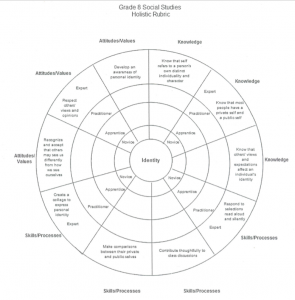Department:
Educational and Counseling Psychology and Special Education
Project lead(s):
Dr. Shawna Faber, Associate Professor of Teaching, Deputy Head, Director of Undergraduate Programs
Dr. Louai Rahal, PhD Candidate
Project members:
Daniel Gallardo Zamora, Graduate Academic Assistant
Reflection:
What led you to your project/inspired your work? What values and principles guided the development of your project?
Responsiveness to the needs of our students inspired this project. Our students need to understand the different perspectives on assessment, what it means and how to do it. The current literature on classroom assessment is dominated by Euro-centric epistemologies and, as a result, our students are not receiving exposure and apprenticeship into Indigenous perspectives on assessment and education. Our students will be teaching students from all cultural backgrounds, and they are expected to connect with their students and create learning experiences for their students that are based on a diversity of perspectives and epistemologies.
What have you learned so far?
Given that our project is still in progress and the interviews still did not take place, our learning has just started.
Two learning experiences that have contributed to our growth as we prepared for this project were the following:
Assessment as Circular: In our previous years, we have taught our students to look at assessment as an iterative cycle: Students submit a draft, teachers give feedback, students submit an edited draft, teachers, give another feedback, and the cycle goes on. As we reviewed documents on assessment from Indigenous perspectives, we read about the “Circular Rubrics,” a concept that we had not included in our teaching. Circular rubrics are based on Indigenous ways of knowing, they support teachers in conducting a holistic assessment of students’ learning paths, they differ from linear rubrics that divide tasks and isolate their components. The construct of Circular rubrics will help us discuss with our students the limitations and sometimes dangers of linear rubrics that compartmentalize competences into separate and isolated elements and that may, consequently, hinder students from seeing their learning path as a holistic experience.
The document that introduced us to Circular Rubrics is the following: Microsoft Word – Circle Rubrics cover1.docx (uregina.ca)
Relational Aspects of Assessment: In the academic literature on assessment, the intellectual and emotional aspects of assessment dominate over other dimensions such as the relational and spiritual. In the limited documents that we have reviewed on some Indigenous perspectives on assessment, we were inspired to create more space in our course for discussing the role of assessment in relationship building and in connecting to the community and to knowledge keepers in our communities.
The artefact that inspired us to focus on the relational aspects of assessment is The Holistic Lifelong Learning Measurement Framework: state_of_aboriginal_learning_in_canada-final_report,_ccl,_2009.pdf (afn.ca)
Where do you plan to go? What impact/influence have you or do you see your project making?
We see our project as a contribution to the efforts of decolonizing educational knowledge. This project will produce a set of educational artefacts and instructional activities that are based on Indigenous ways of knowing. The process of producing the artefacts and activities will be led by Indigenous educators. Finally, the artefacts and instructional activities that we create will support our students in broadening their understandings of classroom assessment, it will also them in identifying institutions that they can connect with to continue growing their knowledge of assessment based on Indigenous perspectives. In addition to helping our students develop knowledge, we want to support them in developing connections to Indigenous educators so that they can continue their learning path well after the course ends.
Short Summary/Project Description of your project
To support our students in engaging with Indigenous ways of knowing about assessment, we will be conducting interviews with Indigenous teachers about how they conduct assessment in their classrooms, and we will be creating videos and instructional activities based on these interviews. The videos and instructional activities will be created in collaboration with an Indigenous graduate assistant.
- Any other learning objects or information pieces you would like to share
Our interviews with Indigenous educators have been scheduled in late June.
